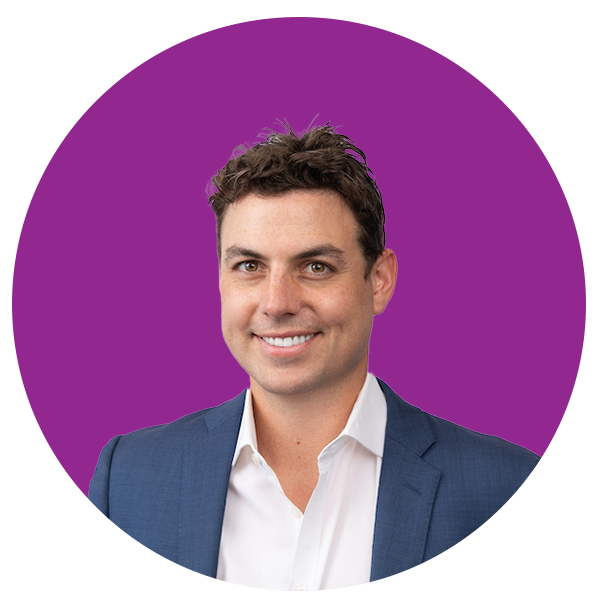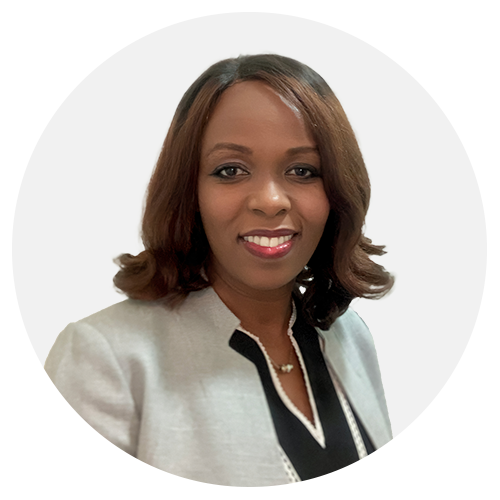
2021
Vision
to
Virtual
Mastering Telehealth Piece by Piece

Have a Question?
Speakers

Jarrett Bauer
Chief Executive Officer
Jarrett Bauer is the CEO and Co-Founder of Health Recovery Solutions (HRS).
Jarrett founded HRS in 2012 while pursuing his MBA in Healthcare Management at The Johns Hopkins University. The company’s clinical results have garnered national attention, and Jarrett has been recognized as a business leader by CNN, Fox News, the WSJ, and TIME.
Jarrett has been recognized nationally as a leader and changemaker influencing innovation in healthcare. In 2016, Jarrett was named to the Annual Forbes 30 Under 30 List, as an entrepreneur reinventing health care.
Jarrett holds a Bachelor’s degree in Finance from Villanova University and a Master’s in Business Administration (MBA) in Healthcare Management from the Johns Hopkins Carey Business School.
Outside of work, Jarrett enjoys spending time with his brother and having fun with the HRS team.

Florence Kariuki
Chief Clinical Officer
As CCO, Florence leads the company’s clinical innovation and reimbursement strategies, responsible for assisting in the development and execution of new product lines, while ensuring clinical quality is maintained and accelerated as the company scales.
Prior to joining the HRS team, Florence served in various leadership roles at Horizon Blue Cross Blue Shield of New Jersey, focused on innovation of Alternative Payment Programs, Value-Based Programming (PCMH, ACO, EOC), Population Health Management, Social Determinants of Health, Palliative Care, and Total Cost of Care Management strategies. She held Critical Care and Maternal/Child patient care positions at the Hackensack Meridian Health System.
Florence holds a Bachelor’s in Nursing from William Paterson University, magna cum laude, and a Masters in Healthcare Administration (MHA) from Seton Hall University, summa cum laude.
Outside of work, you can find Florence cooking, doing crafts, or running around after her 4 amazing kids, who keep her quite occupied with little time to do anything else!

Joe Sedlak
Senior Vice President of Client Success
Joe Sedlack is a Healthcare Executive with 25 years of experience in private and public settings. He has experience in both Client Success and Enterprise Sales with primary emphasis in emerging markets. Prior to joining HRS, he was the Vice President of Client Success at GetWellNetwork where he lead the entirety of the North American Commercial Client Success organization. He is a leader of people fostering new market growth, client retention, adoption, and outcomes. In addition, he has a background in the health systems where he handled financial, operational, and clinical management responsibilities within a Critical Care service line.
Executive Roundtable: Mapping Out the Future of HRS
During the final session of the 2021 Vision to Virtual conference, HRS Executives will sat down to discuss the future of HRS, highlighting new partnerships, product innovations, and clinical insights that will drive the company forward and support clients over the coming years.
Other Sessions
Sorry, no results found.
Keynote: The Rise of Telehealth and Remote Patient Monitoring
Vision to Virtual’s keynote session, hosted on November 3, 2021, presented the key drivers impacting the direction of healthcare and health-technology heading into 2022: the COVID-19 pandemic, the growing role of consumerism, increasing health disparities, telehealth reimbursement expansion, and more.
Establishing a Vision and Setting Goals
To successfully launch or expand a telehealth program, providers must first define and set clear goals and program objectives. This session will review the importance of aligning program goals with individual responsibilities as well as the organization’s overarching mission. Also, it will outline how to evaluate your goals periodically and when to adjust your workflows to ensure continued program success.
Building a Team and Ensuring Buy-In
This session, hosted on day one of the Vision to Virtual conference, outlined the core roles and responsibilities of the telehealth team within an organization, highlighting case studies from HRS partners with telehealth teams as small as 5 members and as large as 50 members.
Operationalizing a Virtual Care Strategy
On day one of Vision to Virtual, HRS’ Clinical Services team announced its new Virtual Visit Care Model to help provider organizations operationalize virtual care. During the session, HRS’ VP of Clinical Services, Patty Upham, unveiled the new care model, outlining best practices to launch a virtual visit pilot program, including staffing requirements, workflow recommendations, and LUPA requirements.
Clinical Roundtable: Addressing the Critical Nursing Shortage
To close out the first day of the Vision to Virtual conference, HRS’ Chief Clinical Officer, Florence Kariuki, was joined by Sentara Healthcare’s Vice President Clinical Services, Kim Bradley, and LHC Group’s Director of Clinical Programs, Kyle Lavergne, to discuss the critical nursing crisis confronting providers across the country and across care settings. During the roundtable, the panelists reflected on the impact of COVID-19 on the nursing shortage, how telehealth and RPM can support providers and patients, and the unique initiatives their organizations have launched to address the nursing shortage now and in the future.
Keynote: Preparing for Telehealth Policy Changes
During the session Kyle and Ann provided a wrap up of the telehealth policy changes that occurred over the last two years that helped spur the adoption of telehealth and RPM during the COVID-19 public health emergency (PHE). In addition, Kyle and Ann offered a look forward at the game changing bills and policy changes to look for heading into 2022, along with advice for how to become an advocate for the expansion of telehealth and RPM services.
Demonstrating Program Success: Leveraging Patient Outcomes
There are two things that are necessary to secure long-term program buy-in and expansion: strong patient outcomes and program data. During this session, Dan Breazeale from Elara Caring joined HRS to review what data should be collected for your telehealth program, how to collect the necessary data, and in what ways you can use that data to inform future strategies and gauge success.
Preparing for Reimbursement
While many organizations deploy telehealth to improve patient outcomes and ease clinical workloads, telehealth programs can also generate revenue through reimbursement opportunities. This session reviews the requirements set by the CMS for obtaining reimbursement, highlighting a case study from HRS partner, Home Health Foundation.
Expanding Beyond Home Health: The Hospital at Home Care Model
This session reviews the key elements necessary to launching a Hospital at Home program, hearing directly from HRS partners at Allina Health who launched a Hospital at Home program in one month during the COVID-19 pandemic.


